100 Years of Huff Hall
When it opened in 1925 at a cost of $772,000 at the University of Illinois, New Gymnasium, as it was called at the time, was described as “the greatest gym in the country”.
It would replace the Military Drill Hall (now Kenney Gym Annex) as the home of Fighting Illini basketball. An eight-foot-deep, 25-yard swimming pool was added in 1927.
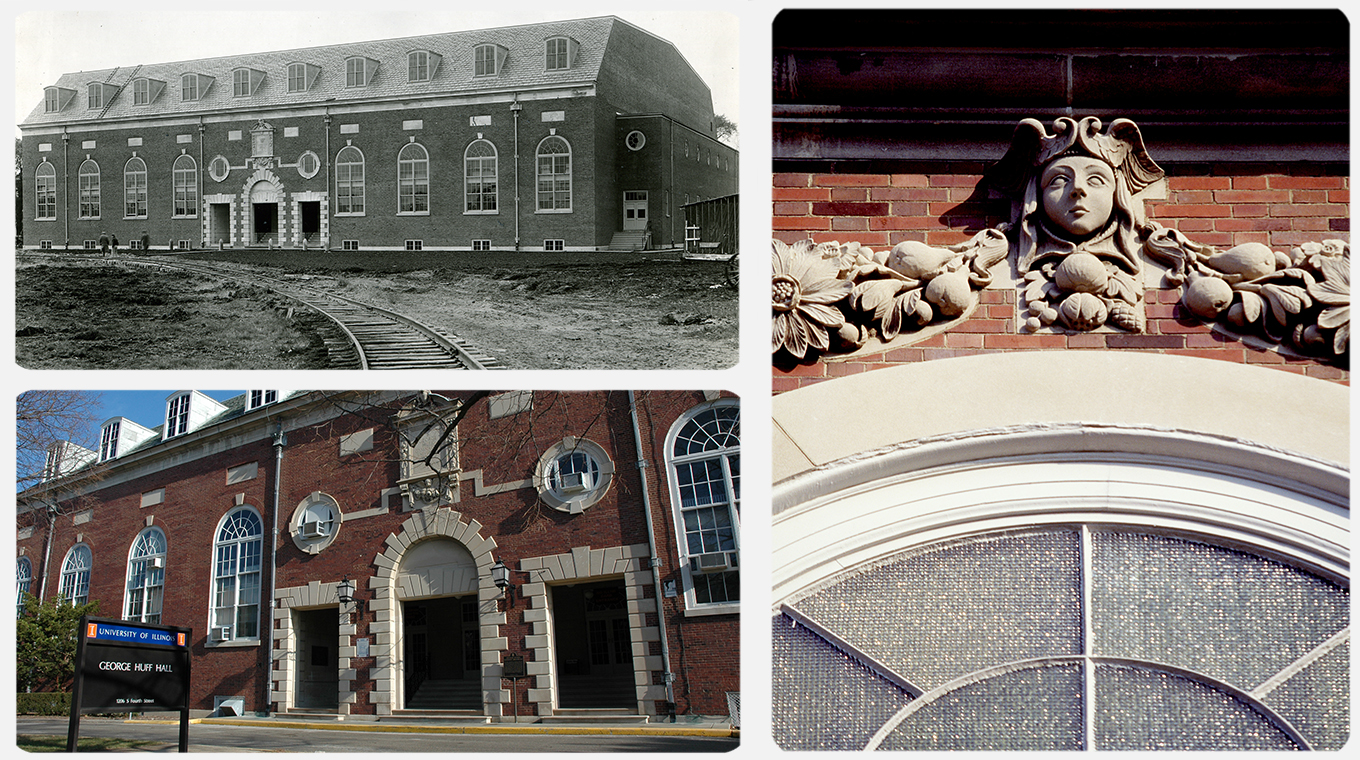
The gym was designed in the Georgian-Revival style by architect Charles A. Platt and University Architect James M. White. Its design harmonizes with other historic campus buildings, including the Armory, Main Library and the Illini Union.
Following George Huff’s passing in 1936, the gymnasium was officially renamed in his honor. Huff, a pivotal figure in Illinois athletics, served as athletic director from 1901 to 1935, guiding the Fighting Illini to an era of unparalleled success. He would play a key role in the construction of Memorial Stadium in 1923, before also spearheading the effort to build a new gym down the road to accommodate the increasing crowds wanting to watch basketball games.
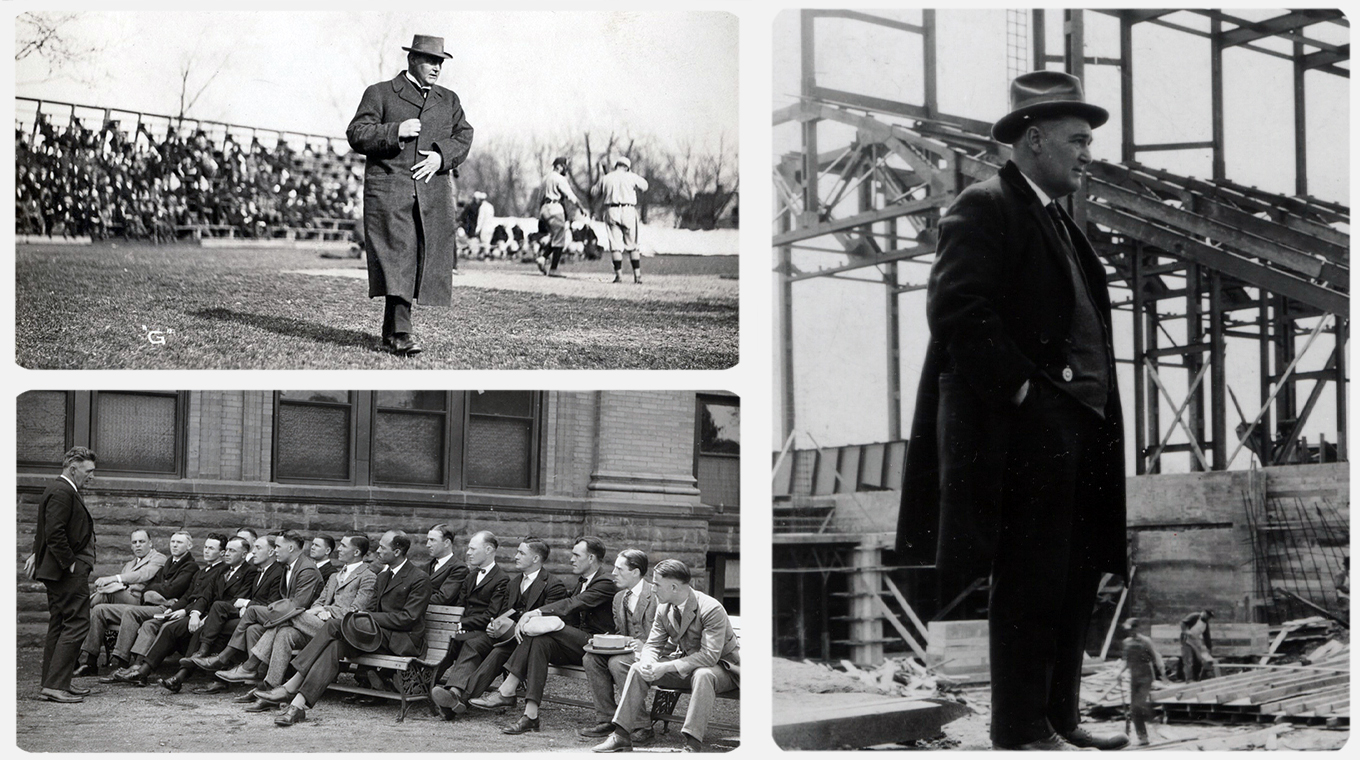
The first game held at New Gymnasium was on Dec. 12, 1925, when the Illini basketball team defeated Butler, 23-22. Illinois basketball would go on to call Huff Gym its home up until the 1963 season, when the Assembly Hall would open just a few blocks south on Fourth Street. During the 38 seasons the men’s basketball team played at Huff, Illinois compiled a home record of 339-79 (.811), winning eight Big Ten championships and earning three NCAA Final Four appearances.
Huff was also the home for the "Original March Madness" during the Illinois High School Association state basketball tournaments from 1926 through 1963.
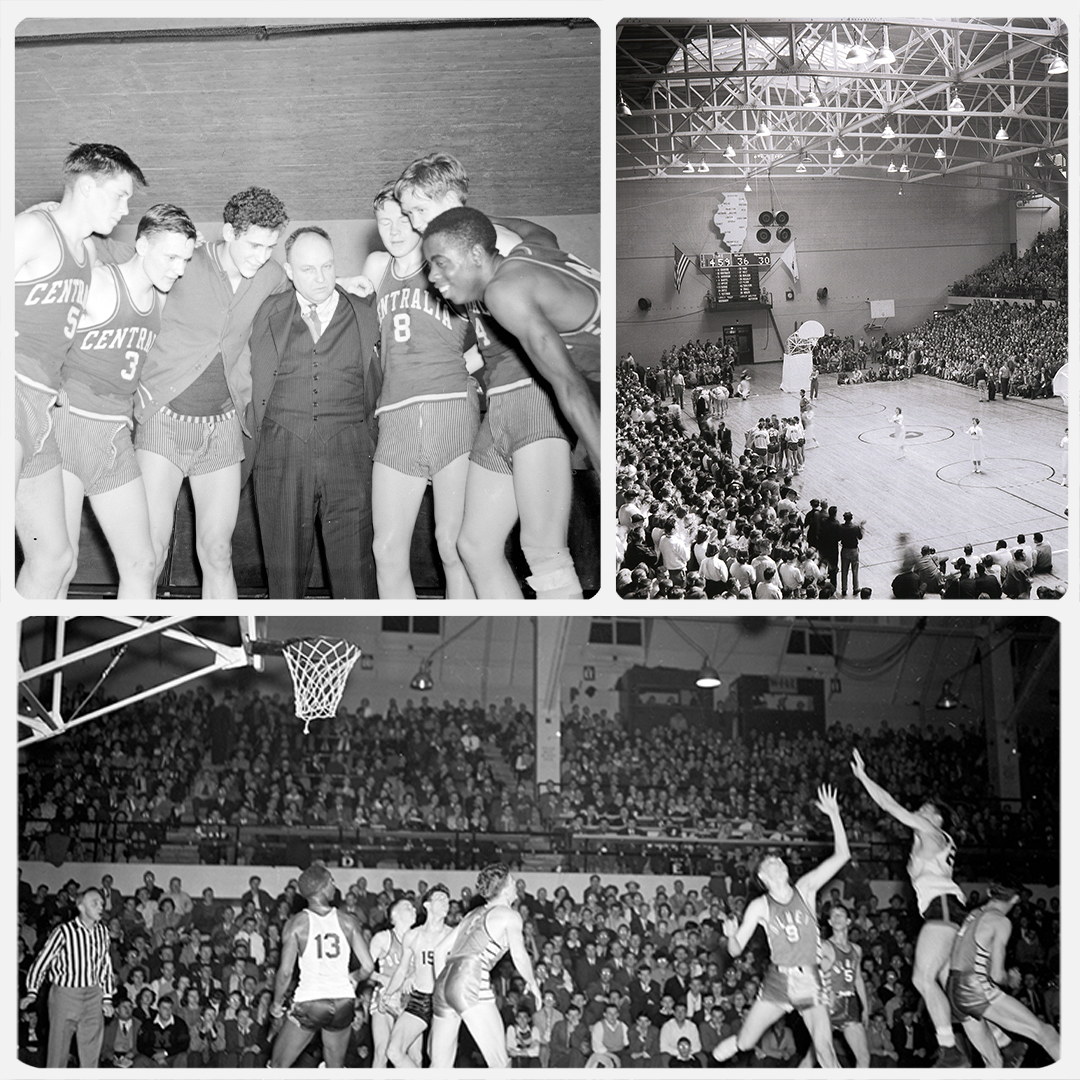
Many NCAA championship events have been hosted at Huff including the 1940 and 1947 national wrestling tournaments, multiple NCAA volleyball tournament matches, NCAA men's gymnastics regional meets, and the first and second rounds of the 1997 NCAA Women's Basketball Championships.
Over the decades, other sports that used the gym include women's basketball, fencing and swimming. Illinois volleyball, wrestling, women's gymnastics and men's gymnastics continue to use the gym for their home matches.
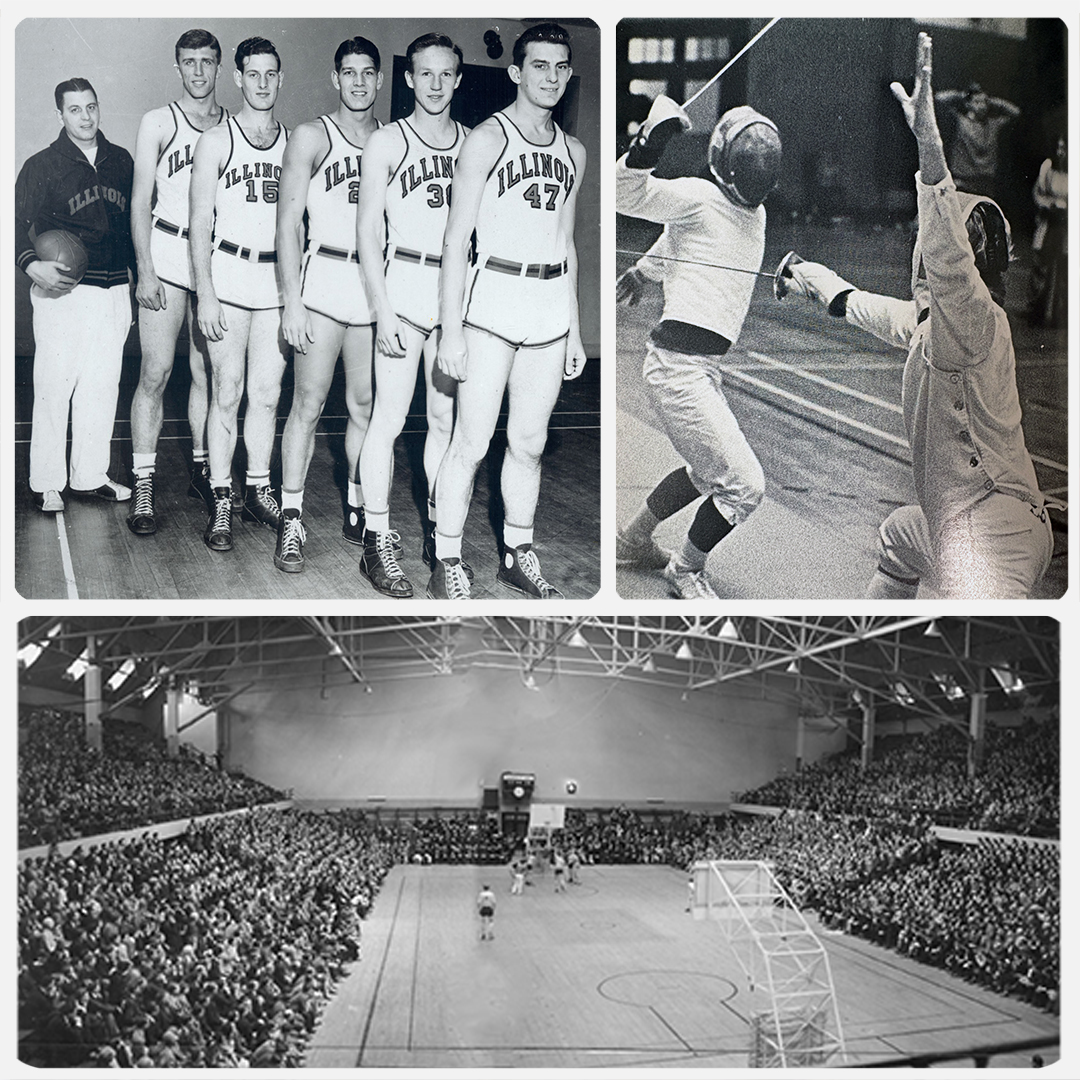
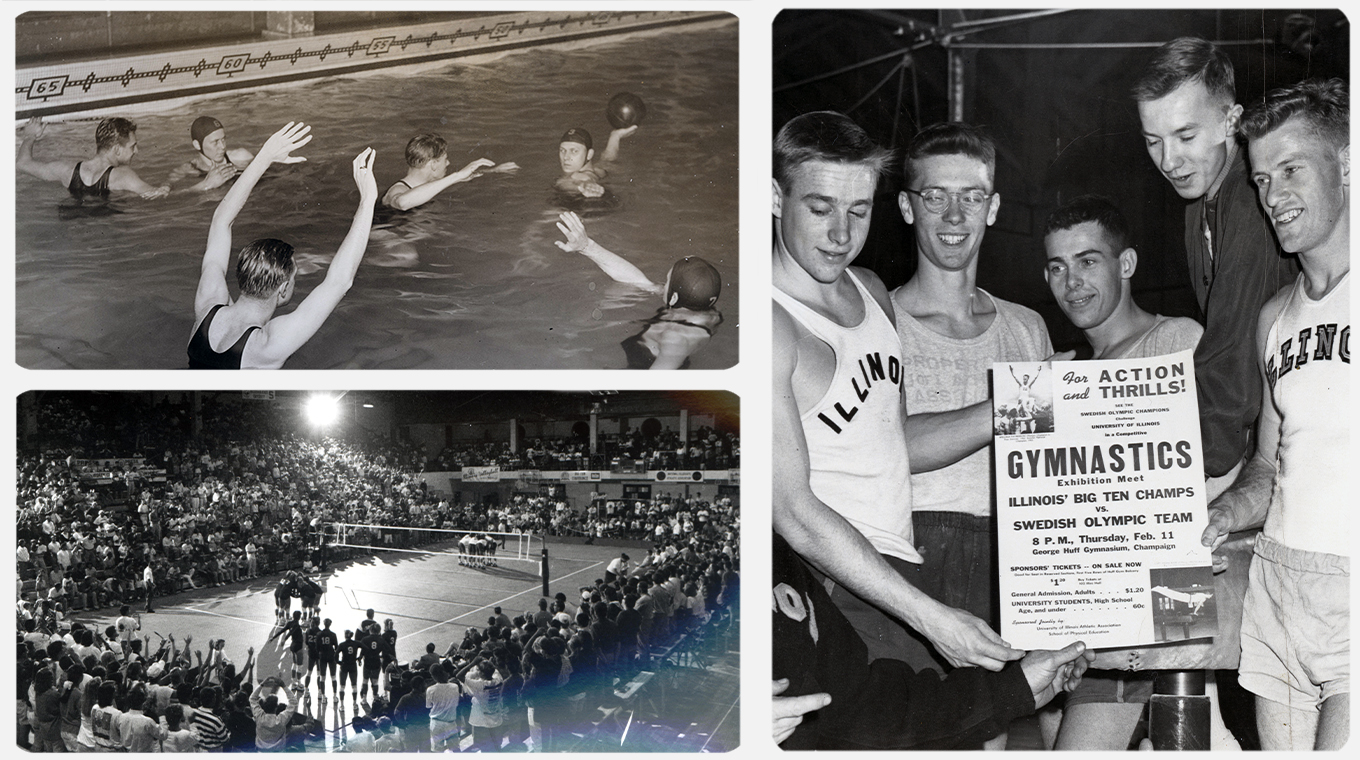
In addition to sports, other events held at Huff over the decades have included graduation ceremonies, campus dances, concerts and entertainment shows, and intramural competition. Eleanor Roosevelt famously gave a speech in the gym in 1942.
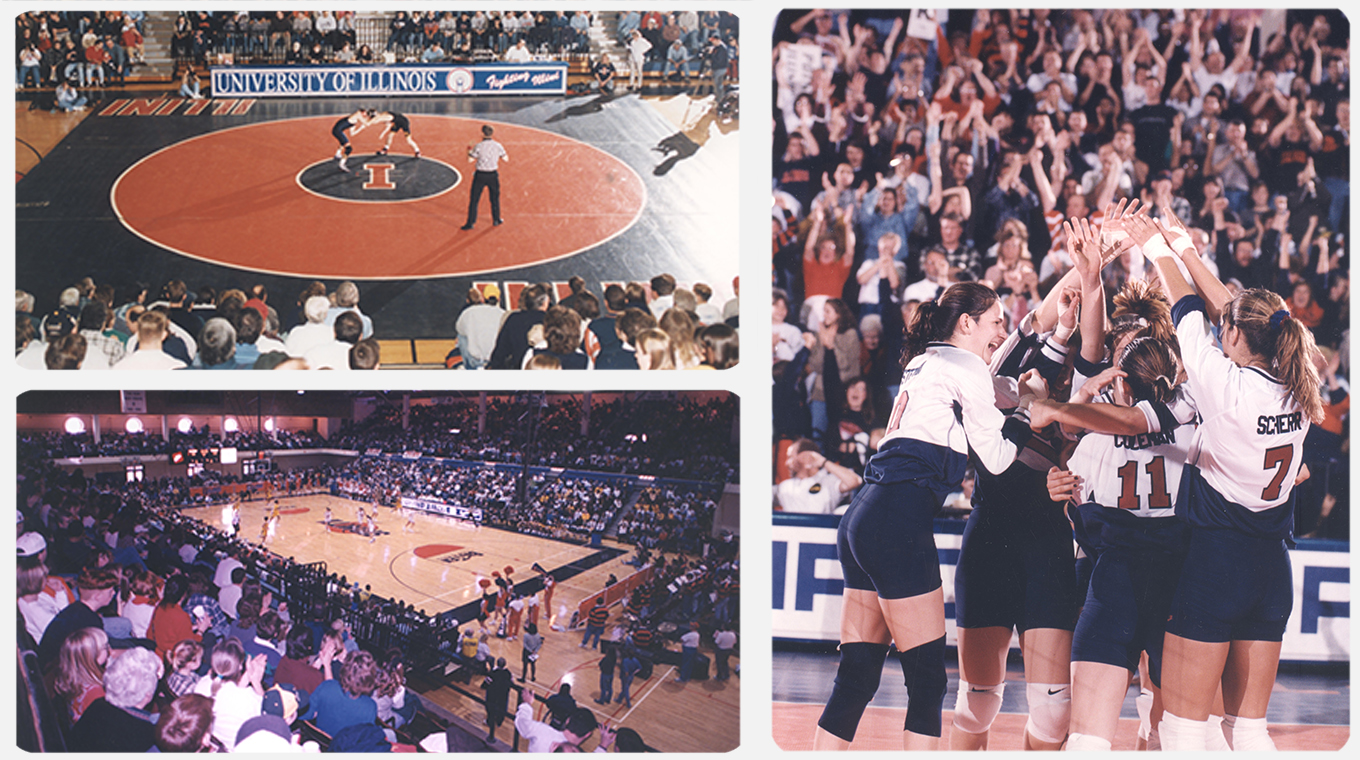
Academics has also served as a vital component in the history of Huff Hall.
In 1944, Thomas K. Cureton was hired as the director of the Physical Fitness Research Laboratory, one of the first of its kind in the country. He developed methods to test motor and cardiovascular fitness and aquatic performance and to appraise the human physique.
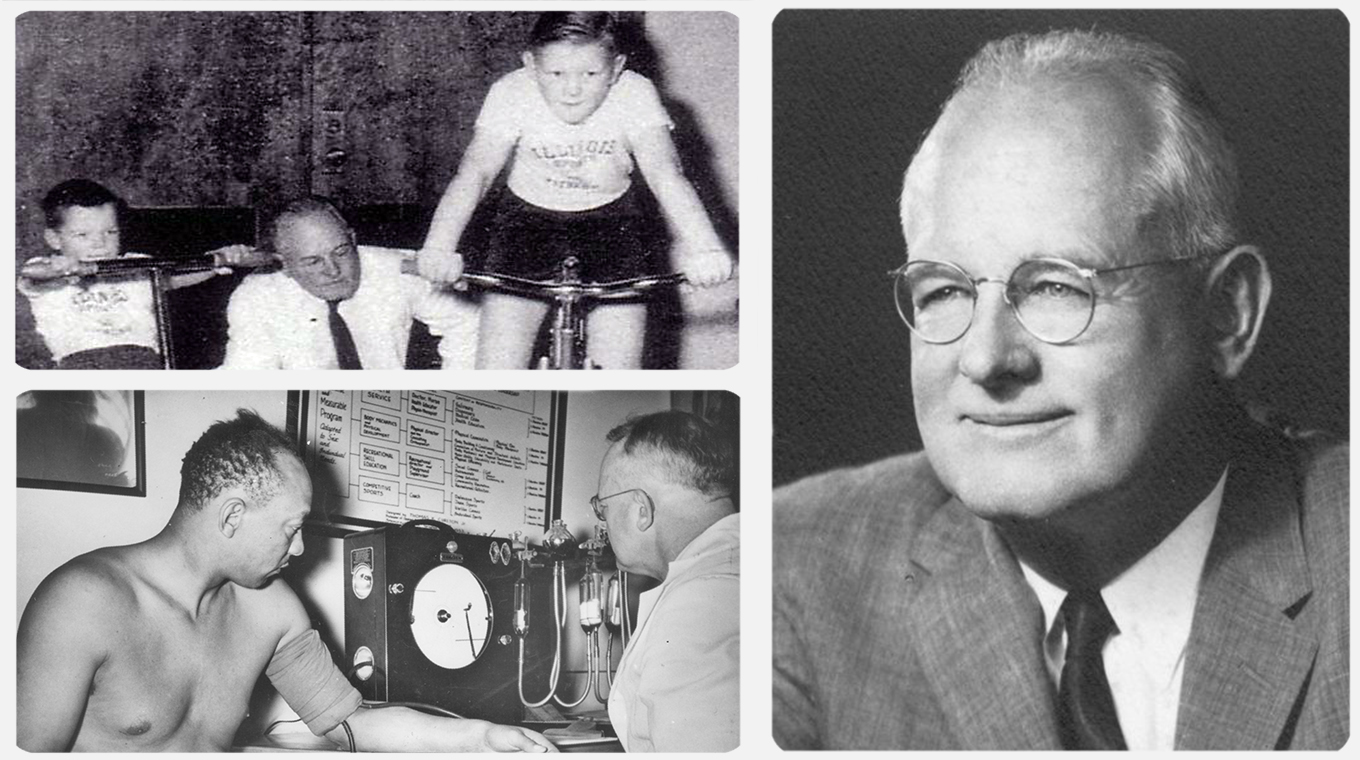
Cureton, who taught at Illinois from 1941 to 1969, is known as the father of physical fitness and played a major role in the development of the fitness movement in America.
Reflecting the growing and evolving mission of the college and its departments, Huff Gym was renamed Huff Hall in Spring 1984. Today, Huff is the nerve center to the College of Applied Health Sciences, housing the dean and administrative offices, as well as faculty office, labs and classrooms.
In the past decade, Huff has undergone large-scale renovations, including the addition of the Khan Annex, which opened in 2011, thanks to a $10 million donation from alumnus Shahid and Ann Carlson Khan. The Khan Annex provided more than 24,000 square feet of state-of-the-art laboratory, instructional and collaborative space. In 2014 the basketball court was replaced by a more springy volleyball surface to protect the student-athletes’ joints, and in 2018, locker rooms received a full upgrade and a new Taraflex volleyball floor came in August of the 2019 season.
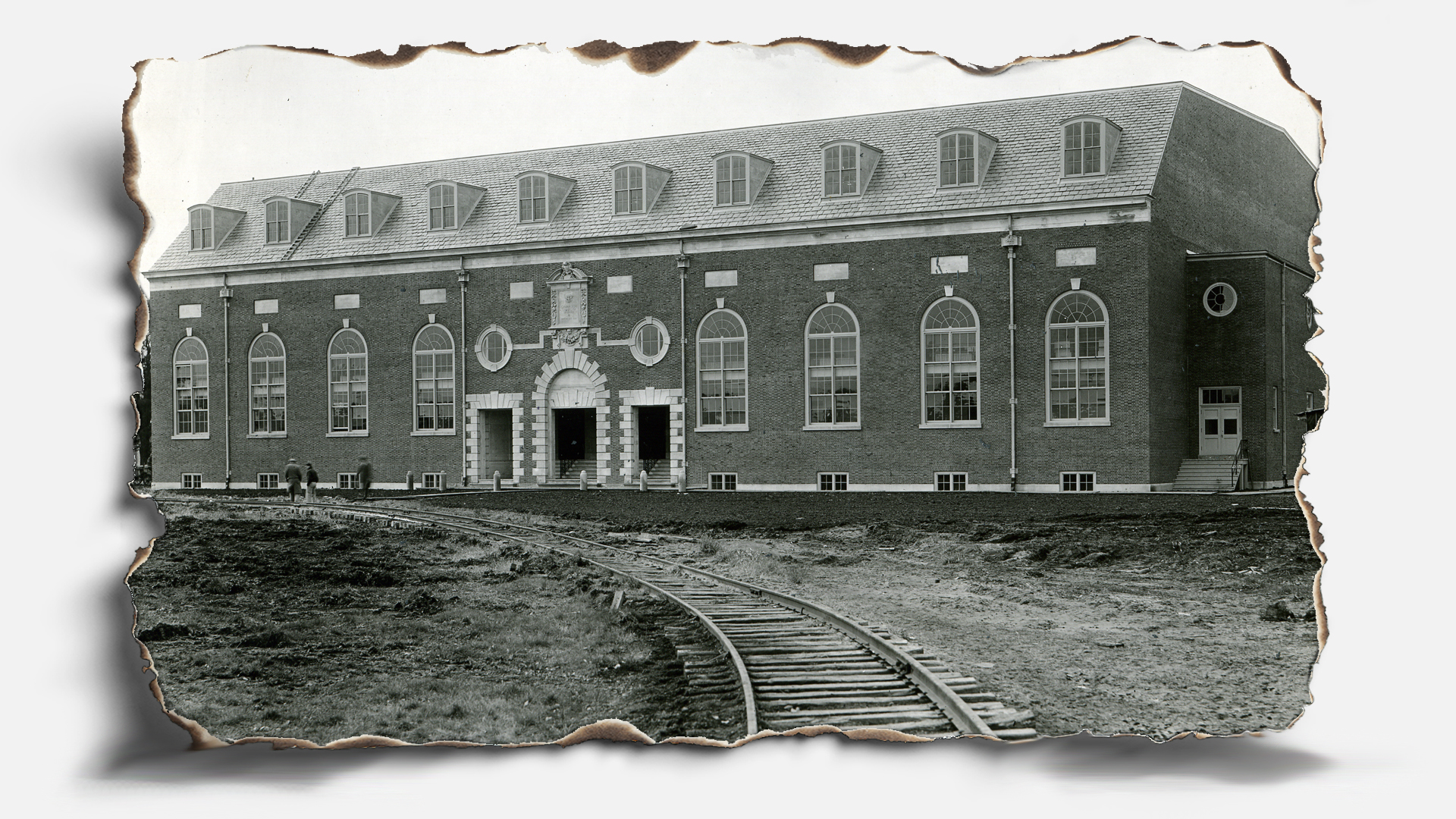
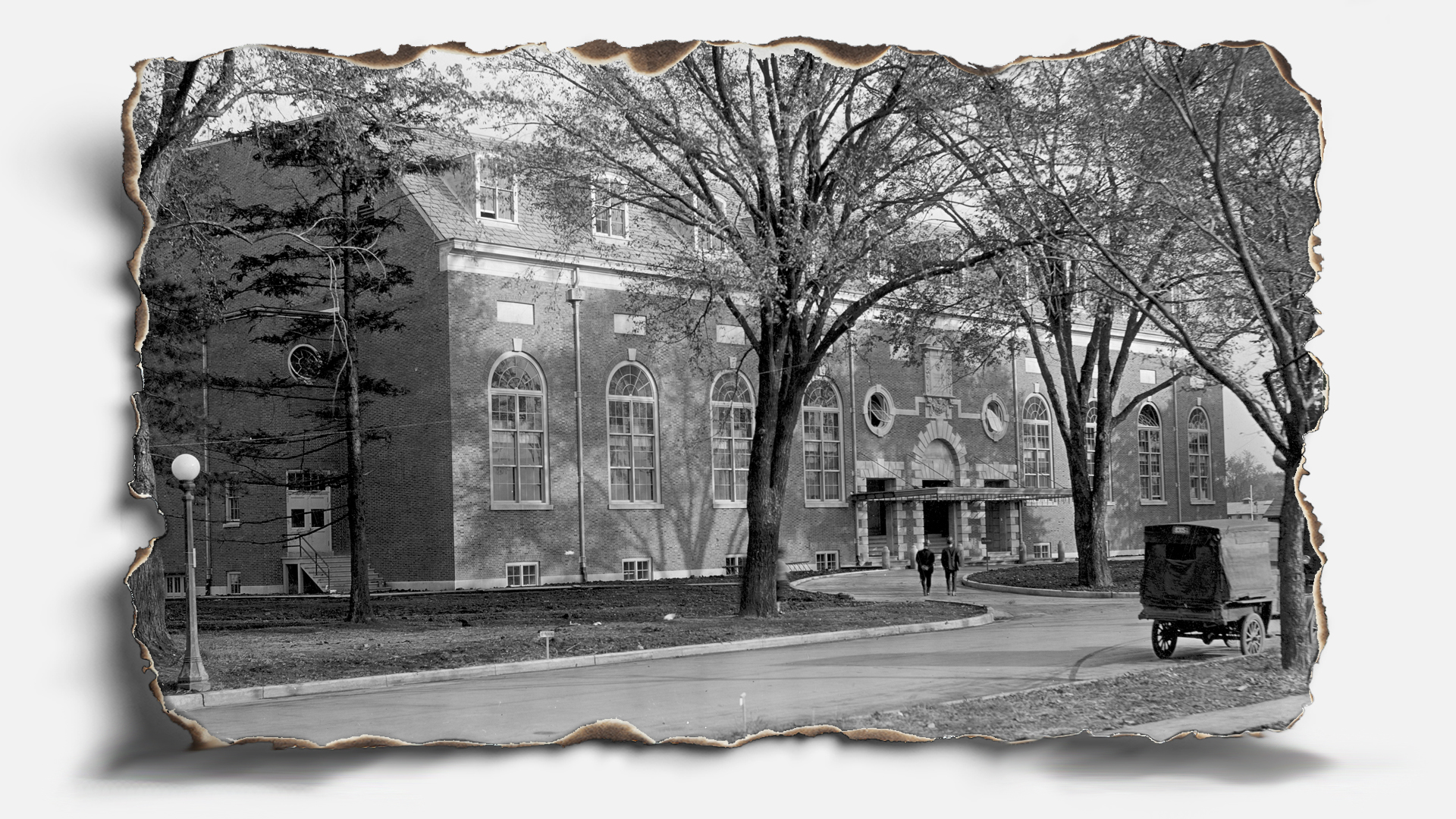
As 2025 marks the 100th anniversary of Huff Hall, the building is being remembered as a place where history was made, where champions were crowned, and where the Fighting Illini spirit has thrived. The academic accomplishments and breakthroughs that have occurred in the building, in its laboratories, and in its classrooms, are just as important a part of that legacy. After 100 years, Huff Hall remains a symbol of tradition, excellence and pride.


